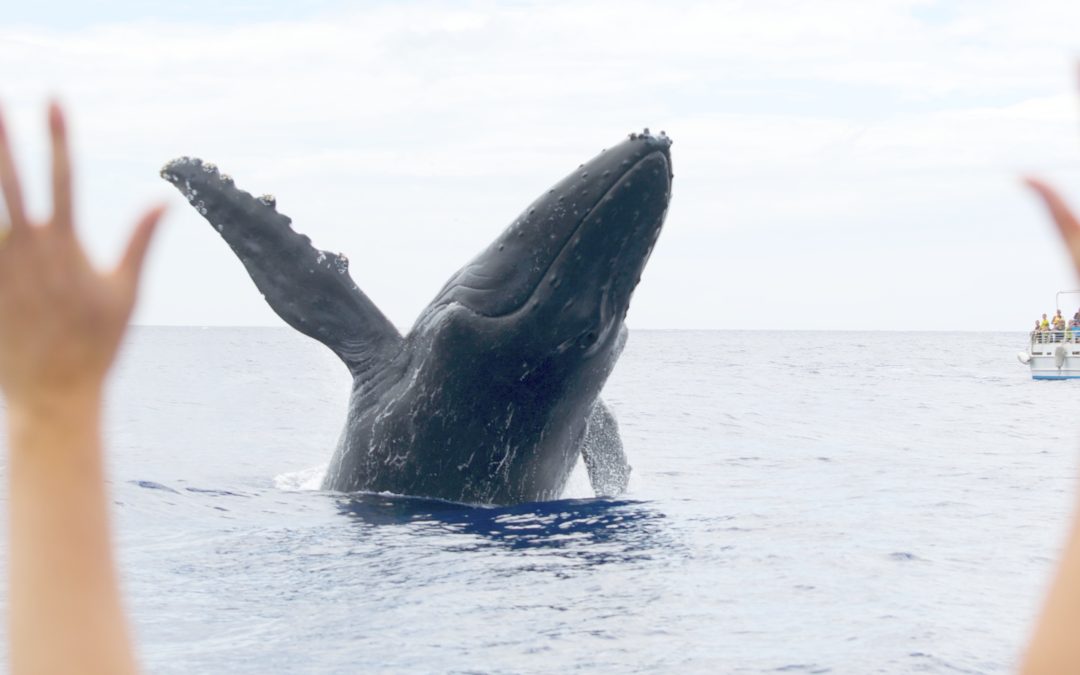Humpback whales are such a big part of Maui culture and have been for thousands of years.
The humpback whales are throughout native Hawaiian culture in many different ways. Native Hawaiians have a powerful spiritual connection to all forms of life. According to their traditions, the islands, the skies above, the vast oceans and the plants and animals were created by their gods, creating a bond of life between the people and their environment. The closeness between native Hawaiians and the natural world is especially strong with family aumakua, deified ancestors who could take the form of an animal such as a shark, turtle, owl or for some families, the kohola (whale). It is said that aumakua appeared in dreams and visions, providing spiritual guidance and a connection between the physical and spiritual worlds. Throughout Hawaii, many people still honor aumakua, whether it’s a family relationship or a personal sense of respect. Names for Whales in Hawaii The Hawaiian language is very descriptive and gave birth to many names for different types of rain, ocean conditions, environments and even animals. The word “kohola” refers to reef flats as well as the humpbacked whale, perhaps linking the spray of the waves on the reef with the spray from a whale’s blow. “Palaoa” is used to refer to sperm whales or the ivory from whale tusks that were highly prized as fishhooks and pendants reserved for alii (royalty). Like many living languages, Hawaiian is also evolving. More recently, the term kuapio (humpback or arched back) has given rise to the name “kuapio kohola” or literally humpback whale.


